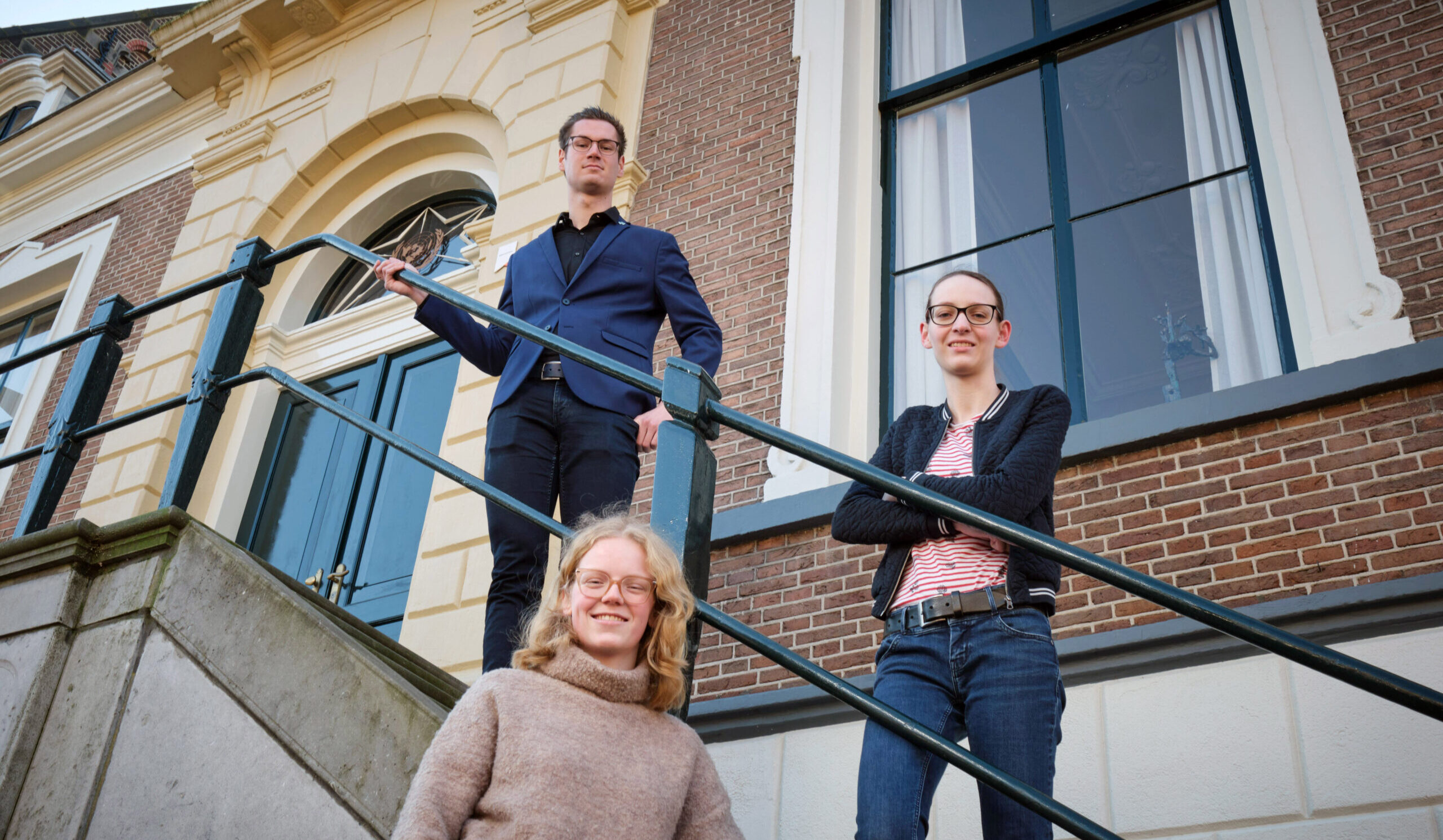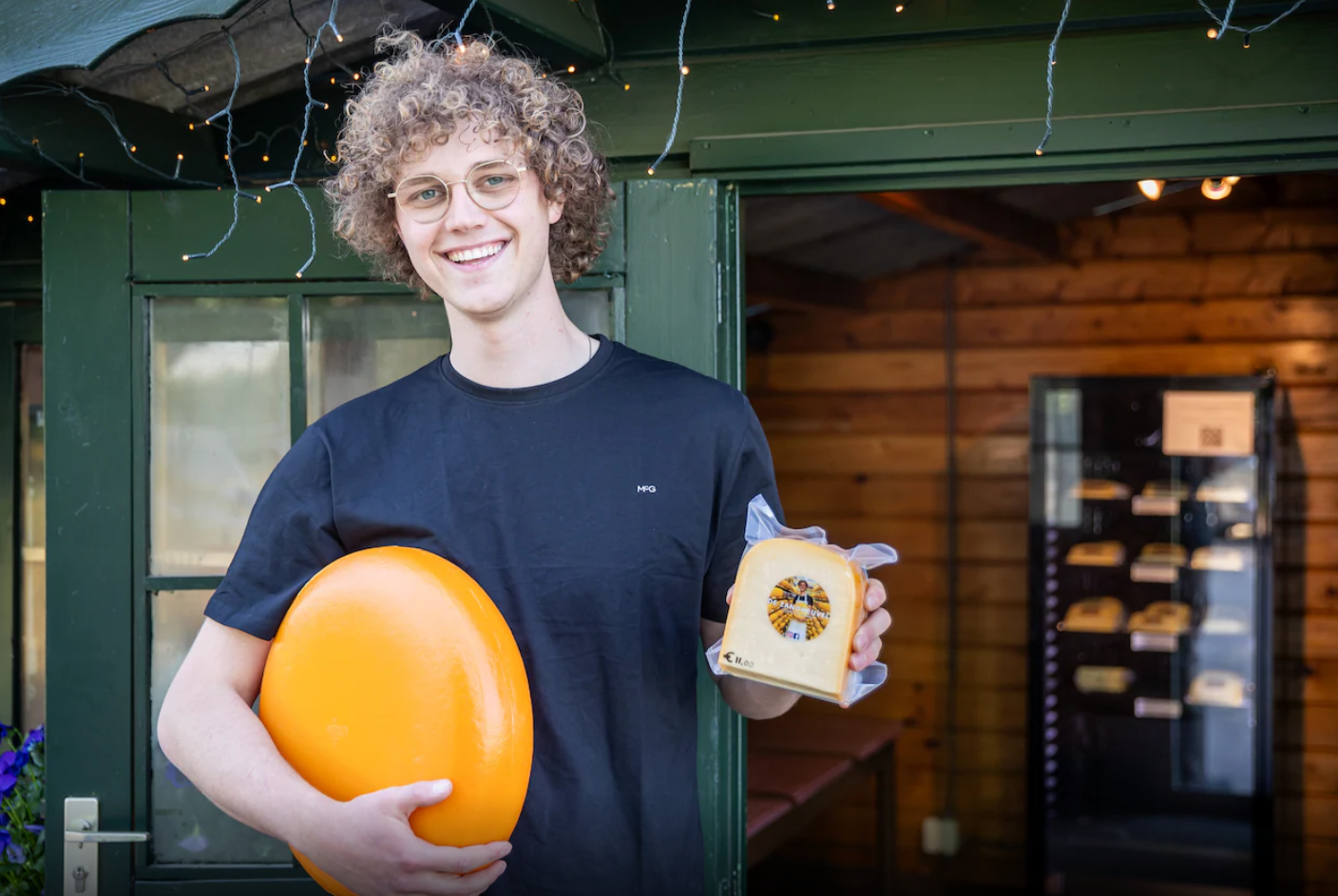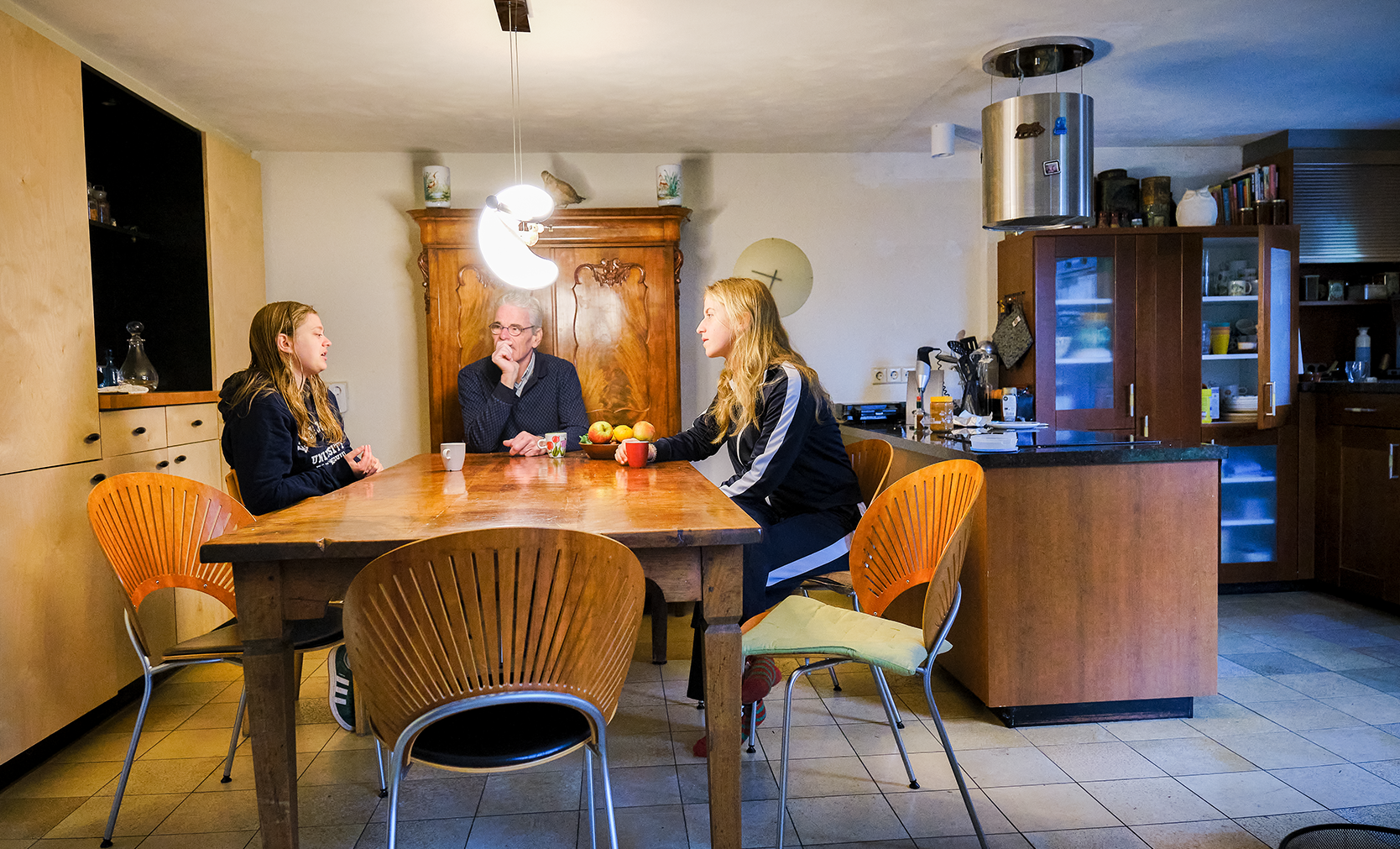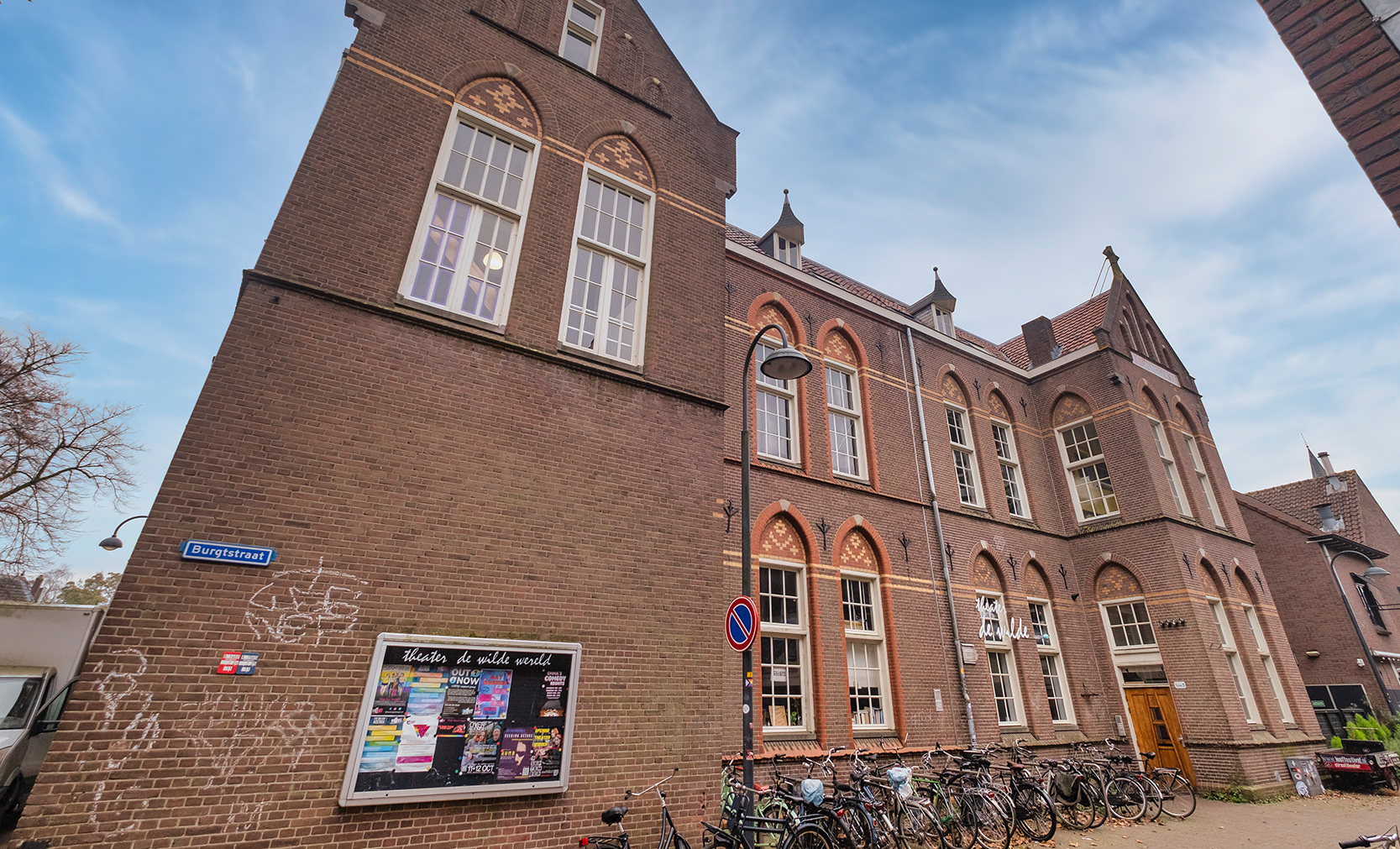Several students are up for election in the upcoming municipal elections on 16 March. How did they find their way into politics, and what are their views? Resource interviewed three of these students.
Sarah Alen (bachelor student Landscape Architecture and Spatial Planning) is only twenty. Still, he already tops the list for Connect Wageningen, a local political party run by students, young adults and internationals. ‘I was recruited during an AID market. They asked whether I was interested in politics and willing to help. I figured I would likely have much to do with provincial and municipal governments during my studies, and I knew nothing about that world, so I was interested.’ And so it was done, Alen became a support group member for Connect. One and a half years later, she tops the list of candidates. ‘I have learned much about how a municipal government works in a short time. It is, however, still a large step and exciting.
We fought for a night bus
I am following courses with municipalities in the area to ensure I can be a good municipal councillor.’ According to Alen, being politically active and studying at the same time is an excellent combination. ‘One week, you may have a political evening where councillors and group members get together to discuss cases, and the next week you have a group meeting. That leaves you with a week in between to prepare at your convenience. And when you have exams, you simply skip a week. Being a municipal councillor is also a part-time activity.’
Connect represents young people, students and starters, a group that is underrepresented in the municipal council, according to Alen. ‘Ultimately, however, we are here for all Wageningen inhabitants. Connect actively keeps in touch with Wageningen residents such as students and entrepreneurs. Our party is very accessible, and we endeavour to involve as many people as we can in the political arena. Our strongest quality is that we lower the threshold for people to get involved.’
Should Alen be elected to the municipal council, she aims to take steps in making Wageningen more sustainable. ‘Currently, leaf-blowers with two-stroke engines are still being used. This can easily be done with electric equipment, reducing noise and emissions. Moreover, there are still fossil fuel-powered municipal cars.’
The topic of accessibility is also important to Alen. ‘There are plenty of youths who would like to go to parties in Utrecht. We fought for a night bus on Fridays and Saturdays to make this possible.’ The campus’ accessibility is also featured on her list. ‘Take busy crossings, for example, where long queues of cyclists have to wait for cars at the traffic lights. Cars are still number one, and we feel that this position should be reserved for pedestrians and cyclists.’
Dirk Wevers (23, master’s student of Molecular Life Sciences) has been active for VVD Wageningen since March 2021. ‘It began with sitting in during group meetings, after which I joined a political evening. Soon thereafter, I was asked whether I would like to work on dossiers such as Beter Bereikbaar Wageningen (improved accessibility in Wageningen, referring to the redesign of the Nijenoord Allee, ed.).’ Now, Wevers is fourth on the VVD list of candidates. So far, he is well able to combine politics with his studies. ‘Working long hours and doing many different things gives me energy’, Wevers says. He is currently doing an internship and has plans to launch a new students association. ‘It is better to consider how much energy something gives you than how much time it consumes.’ Should he make it to the council, there are several topics Wevers would like to address. ‘Wageningen climate neutral, for example. A huge challenge that has to be met in a realistic way and with a broad base of support. The current coalition of GroenLinks, D66, PvdA and ChristenUnie felt we would have to achieve climate neutrality in 2030. That was overambitious and has since been amended to 2040. We say: focus on 2050. That way, you avoid taking decisions you may later regret.
It is better to consider how much energy something gives you, than how much time it consumes
Consider, for example, that you discover a large part of the houses in Wageningen cannot be made sustainable. You could choose to compensate through solar farms and wind turbines. Still, you may also want to conserve nature around Wageningen. The VVD focuses on insulating houses, solar panels on roofs in as many paces as possible, and cutting back on energy consumption. We also have high expectations for technological innovations.’
Another important topic for Wevers is for all citizens to feel free in Wageningen. ‘Recently, we visited LHBTQ+ association SHOUT to discuss how the municipality might support this group and what their needs are.’
The lack of housing is also a major issue for Wevers. ‘VVD has one critical precondition: the finances must be managed correctly. In recent years, expenditure was structurally too high, which was compensated by incidental windfalls, and reserves have been depleted. This approach can only last so long, and when it fails, the results are serious.’
Melissa van der Lingen (23, bachelor student Business and Consumer Sciences and Economy and Governance) is fourth on the PvdA list of candidates. She has been politically active for some four and a half years. ‘When I came to Wageningen to study, I needed to build a network. I was injured and therefore unable to play volleyball. When I heard about the political party Connect Wageningen, that was being established at that time, and I became active.’ Studying and local politics can be combined, says Van der Lingen. ‘It requires diligent planning and accepting that you may sometimes be unable to achieve the highest grades or fall back a little.’
After four years with youth party Connect, in which Van der Lingen held different positions, among which that of a municipal councillor (including bursar, support group member and councillor), she switched to the PvdA in January 2022. ‘Connect represents the voice of the younger generation, a perspective that I take with me to the PvdA, while at the same time leaving that bubble. It is not a move against Connect but rather a move for PvdA. I hope we both end up on the council.’ Van Lingen focused on mental health with Connect, a topic that will remain her focus of attention within the PvdA. It is partly thanks to her efforts that “chat jars” have been placed in cafeterias in Wageningen. These jars contain cards with questions relating to mental health. ‘The idea is to take a card and strike up a conversation.’ There are also subsidies available for organisations that support young people and their mental health during the covid pandemic. ‘But there is still much room for improvement in this area, and the need certainly was not reduced during the pandemic.
You need to plan and accept that you may not always get top grades
Thus, I call for attention for mental health in every issue where it may be relevant.’ Van der Lingen feels that the municipality should collaborate with education and the business sector in favour of prevention. ‘The municipality is unable to solve the long waiting lists for the ggz (mental health service), but with a better prevention policy, fewer people would need the ggz.’
Van der Linden will continue to fight for young people and students from within the PvdA. ‘That includes the aforementioned mental health issues, but also housing for starters and climate transition. In climate transition, we must strive to include everyone, also those with a limited spending capacity. We must prevent people from being literally left out in the cold due to the price of heating. These people will often stop inviting guests over, resulting in social isolation. We can’t have that. Ultimately, we must solve this together.’
Kader 1: WUR-candidates in all parties
WUR students and/or employees feature in the candidate lists of all eight parties that have joined the election. The numbers vary, however:CDA and VVD each have one student listed. D66 has one student and two employees, while ChristenUnie’s list of candidates includes three employees. Four students and one employee are listed for the PvdA, while GroenLinks has two students and four employees. The Wageningen Stadspartij has six employees. Connect comes top with 29 WUR names, almost all of them students.
Kader 2: the municipal council, how does it work?
The municipal council is the highest governing body within the municipality. The council decides what is to happen in the municipality. The Municipal Executive implements the council’s decisions, after which the council monitors that the decisions are implemented in accordance with wishes.Residents may elect council members during the municipal council elections every four years. The number of council members varies per municipality. Wageningen’s council has 25 members. This year, eight parties have joined the elections. If they get enough votes, candidates from all of these parties may sit on the council.Members of the same party are called a group. Groups that agree on major issues may collaborate and form a coalition. In general, groups will try to achieve a coalition that holds a majority in the council. A plan can only be ratified with a majority agreement. Groups that are not part of the coalition are called the opposition.
Unsure on what to vote for during the municipal council elections? Do the test on wageningen.stemwijzer.nl (in Dutch)

 Left to right: Dirk Wevers (VVD), Sarah Alen (Connect) and Melissa van der Lingen (PvdA) in front of the city hall in Wageningen. Photo: Guy Ackermans
Left to right: Dirk Wevers (VVD), Sarah Alen (Connect) and Melissa van der Lingen (PvdA) in front of the city hall in Wageningen. Photo: Guy Ackermans 

